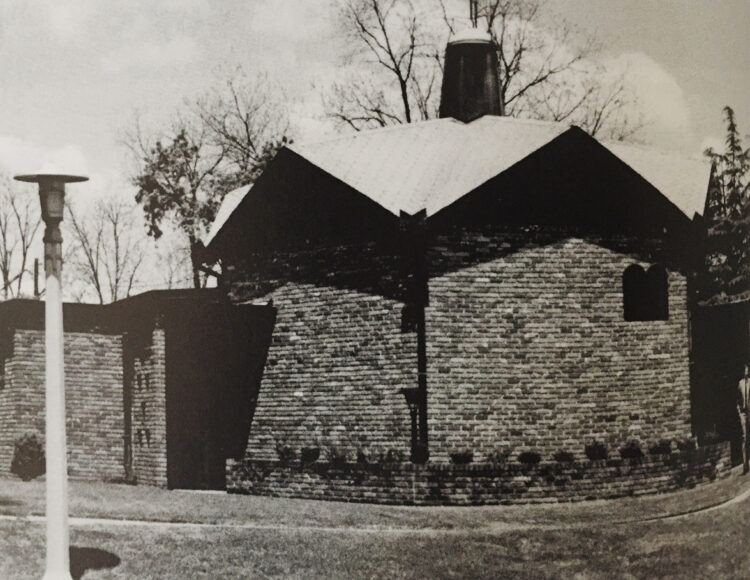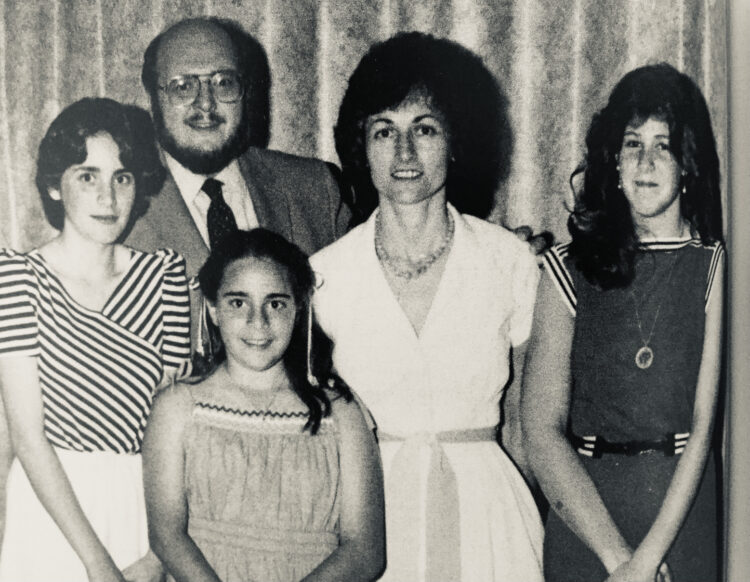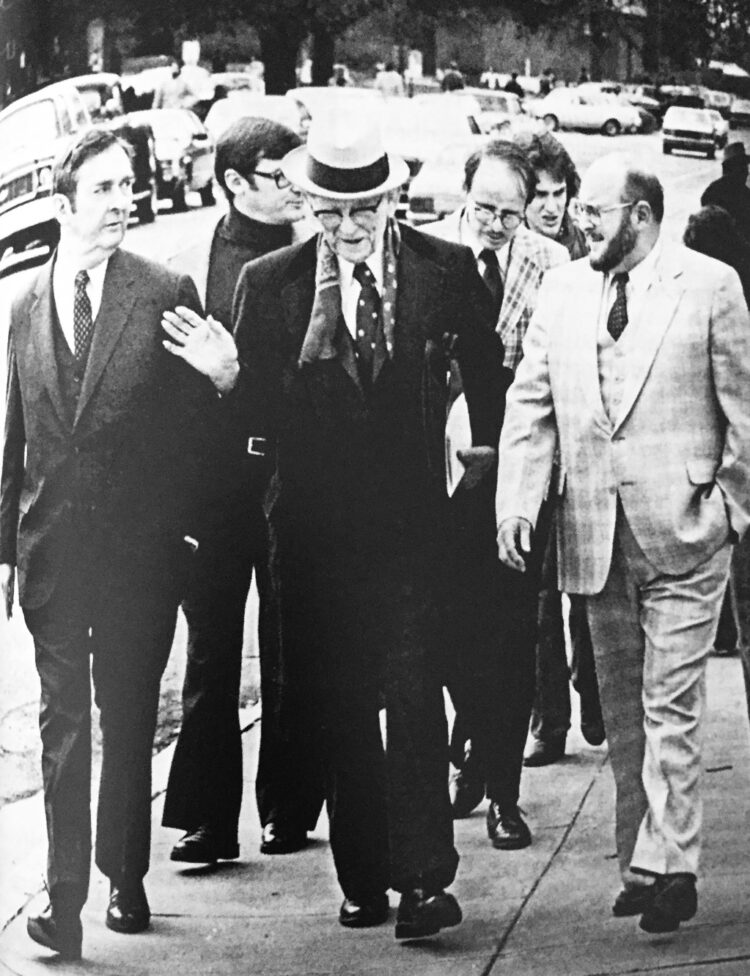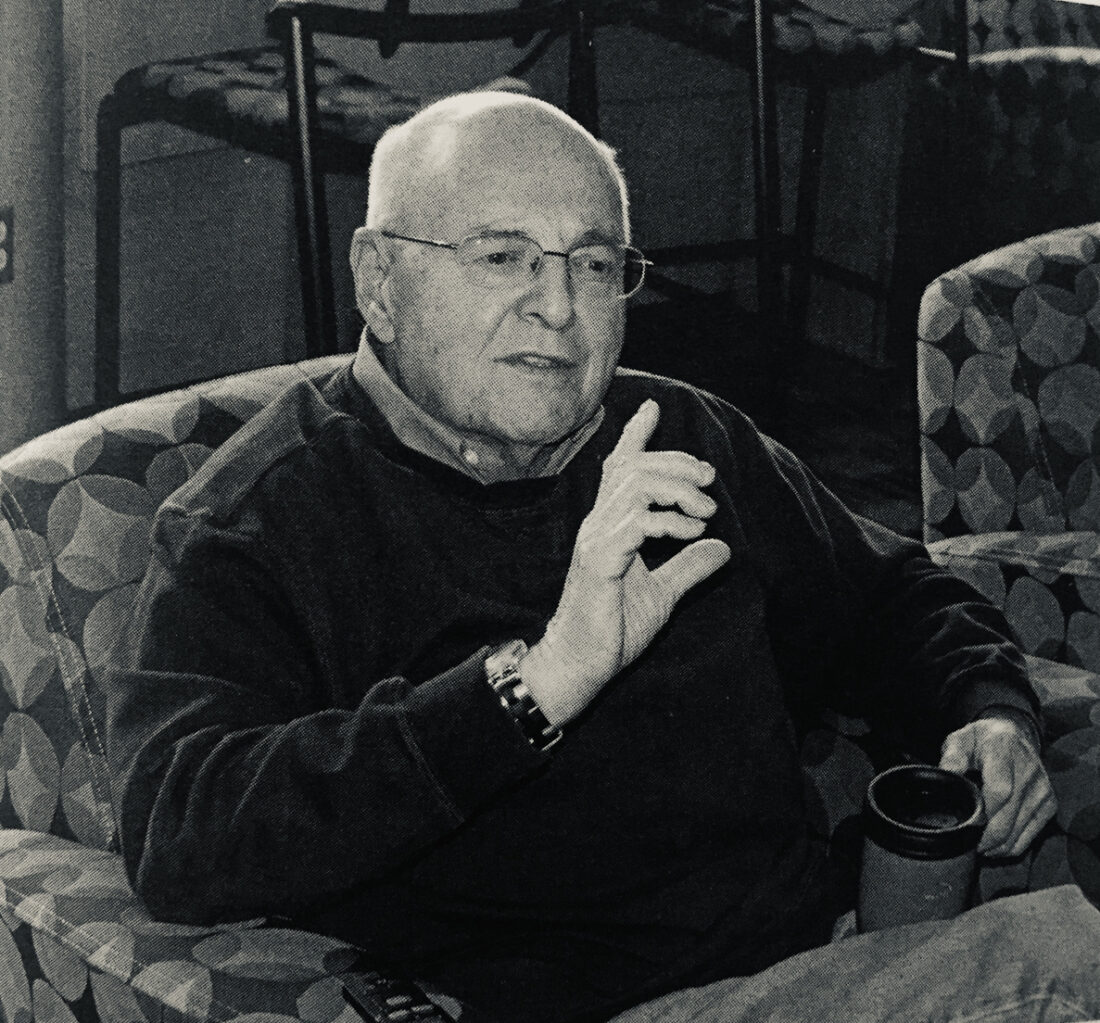When Howard Ball informed his mother he had accepted a position at Mississippi State University, she was aghast. “Her response was very loud and, for her, terse: You are meshugenah!” he writes in Taking the Fight South: Chronicle of a Jew’s Battle for Civil Rights in Mississippi (University of Notre Dame Press).
“She truly believed that,” he goes on to say. “Mississippi was an evil third world country. Tearing up, she begged me not to move, asking me again and again, ‘Why would a nice Jewish professor from the Bronx, with a beautiful wife and three precious daughters, move to that place.'”
Ball was a tenured associate professor of political science at Hofstra University in Long Island, New York, when that exchange occurred. A specialist in political theory, civil liberties and constitutional law, as well as a civil rights activist, he uprooted himself and his family to move to that bastion of Dixie.

“The Mississippi State University campus was very big and quite pretty, and the people I met seemed very decent and quite gracious,” he explains. “And there were a greater percentage of black students on this predominantly white southern campus than there were on Hofstra’s campus.”
In addition, the teaching load was relatively light, the courses were all in his favorite subject area, and the job came with a promotion and a higher salary. “Most of all, I would have the free time to do some serious research into the status of civil rights in the South. For me, I thought, Mississippi would be my laboratory.”
Ball taught at Mississippi State University, adjacent to the town of Starkville, from 1976 to 1982, and in this engaging book, he recalls his experiences as a liberal in a staunchly conservative state which had been an integral part of the Confederacy and which fiercely resisted desegregation.
“While we knew we had to adapt to some of the cultural norms and behaviors of our new community, we also knew that there were some situations where we could not change our behavior at all,” he says. “Life in Mississippi was a very human balancing act for the five of us.”
He adds, “Living in Mississippi we experienced the raw, naked power of the white elite working 24/7/365 days to evade, avoid, and delay doing the right thing for the black citizens of the state.”
As a college student in the 1960s, Ball was a dedicated civil rights worker. Later, as an academic, he wrote two books about African Americans — A Defiant Life, a biography about Thurgood Marshall, the first black man to be appointed to the U.S. Supreme Court, and Murder in Mississippi, an account of racial injustice in the Magnolia State.
And in Mississippi, Ball’s commitment to social justice was such that he continued working for the American Civil Liberties Union and wrote op-ed pieces for major newspapers about voting rights.
Taking the Fight South, his most personal book, transports a reader to a region of the United States deeply steeped in Christianity and tradition.
“Everyone we met, everywhere, from the campus and from the larger community, wanted to know our religious affiliation,” he writes. “For New Yorkers like us, this was a new experience as well as an irritating one.”
One of the secretaries in his political science department, a woman whose surname was Cohen, was in fact an observant Baptist whose husband’s grandfather had been a rabbi and whose husband had converted to Christianity. “She was a person who, every three weeks or so, came into my office to tell me that she dreamed of me last night going to hell unless I accepted Christ in my life … She told me she prayed for the souls of non-Christians, people like me who did not share her religious beliefs.”

Although Starkville and environs had almost fifty churches, there was not a single synagogue in Oktibbeha county, says Ball. “The closest places of worship for us were a Reform temple in Columbus, Temple B’nai Israel, twenty five miles east, and a Conservative synagogue north of Starkville, in Tupelo, much further away …”
The first Jewish families in Columbus, in northeast Mississippi, were itinerant peddlers, having arrived from the Germanic states in the 1840s. They built Temple B’nai Israel, originally known as the Church of the Hebrew Persuasion, in 1879. The high tide of Jewish growth came at the turn of the 20th century, when around 200 Jews lived in Columbus and nearby towns.

Starkville’s Jewish community was a small and declining one in the 1970s, its members being retired businessmen who owned retail stores, who had lived there for generations, and who had deep roots in the South. One of them, Henry Meyer, was the former editor and publisher of the Starkville Daily News.
“The community was generally tolerated by the goyim,” he says, using a rather derogatory expression for non-Jews.
Jews preferred to keep a low profile. “We don’t want visibility,” an elderly woman told him. “We like being white and invisible. It’s a safety device. Let the goyim pick on the n …. rs, we say, and we’ll get along as we have been getting along for over a century. We’re all happy livin’ the way we live, and we don’t get into trouble with the goyim.”
To the Jews of Starkville, Ball was an outside agitator due to his anti-segregationist views and his activities monitoring Mississippi’s compliance, or lack thereof, with the 1965 Voting Rights Act. His wife, Carol, a teacher, was the leader of the only integrated Girl Scout troop in the county.

“Looking back, I realize how much our civil rights actions instantly created trepidation in the hearts and minds of our fellow Jews in Starkville,” he says. “We were … outsiders, aliens, to both Southern Jews and Southern Protestants.”
To diehard segregationists, Ball was beyond the pale. They would call him late at night or early morning and demand his departure. “Fortunately, these threats never amounted to anything. No crosses were burned on our lawn. No rocks were thrown into our windows.”
Most of his close friends on campus and in Mississippi were transplanted Catholics from New York City or New York state. “In many ways, they were our landsmen, our family, more so than the local Mississippi Hebrews.”
Ball incurred the wrath of colleagues and administrators by recruiting minorities and women into one of the university’s programs. His detractors were not embarrassed to refer to him as that “damned Jews and n .. ger lover,” he notes.
The university president, James McComas, supported Ball, but Senator John C. Stennis, a notorious segregationist, demanded his immediate dismissal. When Ball requested federal aid for the university’s public administration program, Stennis warmed to him and would invite him to his home to discuss American history.

“It was a very unusual relationship between a venerable Mississippian who believed in the concept of states’ rights …. and a New York Jew who spoke, wrote and called for greater national protection against a local majority’s successful efforts to deprive, dilute or deny civil and voting rights to blacks and other minorities.”
By his sixth year in Mississippi, he was ready to leave. “Many good things had happened in the political science department,” he says, referring to the “truly diverse, first-rate graduate program in public administration he had created.
“However, by then, our already strained relations with the Jewish community had become more painful.” As he puts it, “My actions as a voting rights advocate, as a board member of the Mississippi American Civil Liberties Union, and as a visible supporter of extending the 1965 Voting Rights Act had led the local Jews to distance themselves from us. It was a sort of social ostracism from our coreligionists, as well as from many faculty and administration on the Mississippi State University campus and from townspeople we thought we had befriended.”
And the abusive phone calls from racists had tired him and his wife.
Yet Mississippi was personally rewarding for Ball. “I learned how to eat fried cucumbers and fried green tomatoes. And I learned about the terrible pains brought on by racial humiliation. Most of all, I learned about the courage from my students, the courage it takes for a young black person to confront the slurs, the epithets, and worse and to stay focused on the goals and the dreams …”
Despite his feelings of disillusionment, Ball has repeatedly returned to Mississippi since leaving to continue his research and renew close friendships.
In closing, he muses, “My hope has always been that Mississippians will stop fighting for the lost cause of racism and use their intelligence, their skills and their goodwill to deal with these very critical issues.”
